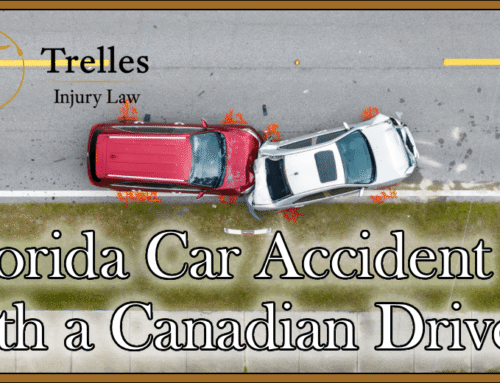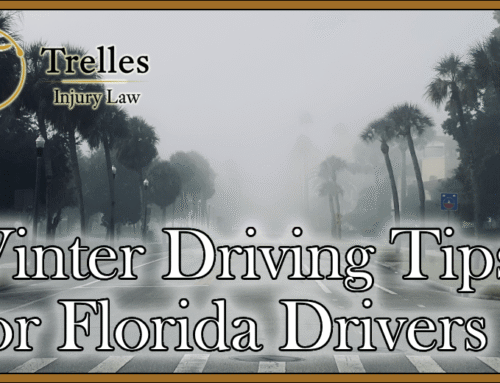When you’re injured due to someone else’s negligence, the aftermath can be overwhelming. Misinformation can prevent you from getting the medical care, compensation, and legal protection you deserve.
This blog outlines the top 10 personal injury misconceptions in Florida, covering key facts about the state’s no-fault system, insurance coverage, deadlines, and the role of lawyers. By debunking these myths, we hope to empower injury victims with accurate and up-to-date information that protects their rights.
No-Fault Insurance Means You Can’t Sue
Many Floridians mistakenly believe that Florida’s no-fault insurance laws prohibit personal injury lawsuits. The confusion comes from how Personal Injury Protection (PIP) coverage works. PIP pays for your medical bills and lost wages, up to $10,000, regardless of who caused the accident. However, this does not prevent you from suing the at-fault party if your injuries are deemed “serious” under Florida law.
Florida law allows personal injury claims to move forward if the injuries involve permanent scarring, significant loss of function, or permanent bodily injury. If you meet this threshold, you can pursue compensation for pain and suffering, future medical expenses, and more. So while PIP covers initial costs, it doesn’t replace your right to sue when serious harm is done.
Top 10 Misconceptions
- No-Fault Insurance Means You Can’t Sue
- Top 10 Misconceptions
- If You’re Partly at Fault, You Get Nothing
- You Have Plenty of Time to File a Claim
- If the Other Driver Is Uninsured, You Can’t Recover
- Insurance Adjusters Are There to Help You
- If You Didn’t See a Doctor Right Away, You Can’t File a Claim
- Social Media Can’t Hurt Your Case
- Settlements Automatically Cover Medical Bills
- Every Case Goes to Trial
- Hiring a Lawyer Costs Too Much
- How Trelles Injury Law Can Help You
If You’re Partly at Fault, You Get Nothing
This is one of the most damaging myths for injury victims. Florida follows a modified comparative negligence system. That means your percentage of fault reduces your compensation, but you can still recover damages as long as you’re not more than 50% at fault. For example, if you’re found to be 30% at fault and your damages total $100,000, you can still recover $70,000.
This rule encourages fair outcomes based on shared responsibility. Many injury victims wrongly assume that if they made any mistake, like speeding slightly or failing to wear a seatbelt, they’re automatically disqualified from recovering anything. In reality, a partial fault does not eliminate your ability to make a claim.
You Have Plenty of Time to File a Claim
Many people think they have years to file a personal injury claim in Florida. But as of March 2023, Florida changed the statute of limitations for negligence-based personal injury cases from four years to just two years. That means if your injury occurred after March 24, 2023, you typically only have two years from the date of the accident to file your lawsuit.
Missing this deadline can completely bar your claim, even if you have a strong case. There are some exceptions, such as if the victim is a minor or incapacitated, but they are limited. The bottom line is that acting quickly isn’t just smart, it’s legally necessary.

If the Other Driver Is Uninsured, You Can’t Recover
It’s scary to learn the driver who hit you has no insurance, but that doesn’t mean you’re out of options. Florida has a high rate of uninsured motorists, which is why Uninsured/Underinsured Motorist (UM/UIM) coverage is so important. If you have it, your policy can step in to cover losses that the at-fault driver can’t.
Even without UM coverage, you may still be able to collect through your PIP, MedPay, or health insurance. A lawyer may also help uncover other liable parties, like a vehicle owner, employer, or municipality. Never assume an uninsured driver means a dead-end case.
Insurance Adjusters Are There to Help You
It’s common to think adjusters are neutral or even helpful, but their job is to protect the insurance company’s bottom line. That means minimizing payouts, gathering information that weakens your case, and getting you to settle fast, often for far less than you deserve.
Adjusters may ask you for a recorded statement, offer a quick settlement, or act like you don’t need an attorney. But these tactics are designed to limit their liability. Always speak with a lawyer before giving a statement or accepting a payout, especially early in the process. You can also review national road safety resources for more guidance on protecting yourself after an accident.
If You Didn’t See a Doctor Right Away, You Can’t File a Claim
While prompt treatment helps your case, it’s not an absolute requirement. That said, Florida PIP laws require treatment within 14 days to qualify for full PIP benefits. Even if you missed that window, you may still have a valid claim, especially if your symptoms worsened over time after a car accident. Always document your injuries and follow medical advice.
Insurers may use delayed treatment to argue your injuries aren’t serious or weren’t caused by the accident. But if your pain developed gradually or you were unaware of the extent of your injuries, you still have legal options. Documentation and medical records are critical, even if there’s a delay.
Social Media Can’t Hurt Your Case
Think again. Insurance companies often monitor your social media accounts, looking for photos, check-ins, or posts that contradict your injury claims. A single picture of you smiling at a BBQ can be used to downplay your pain. Stay off social or post very cautiously while your claim is active.
Even innocent content can be twisted to suggest your injuries aren’t real or aren’t serious. It’s always safest to avoid discussing your health or accident online until your case is resolved. Ask your attorney if you’re unsure what’s safe to post.

Settlements Automatically Cover Medical Bills
Not always. Your final settlement may need to account for medical liens, money owed to hospitals or insurers, and outstanding balances from providers. Many people don’t realize their settlement funds are used to pay off these obligations before they receive their portion.
Your attorney will often negotiate with medical providers and insurance companies to reduce those amounts. This process can significantly impact how much you take home from your settlement. Understanding where your money goes is a crucial part of the recovery process.
Every Case Goes to Trial
Most personal injury claims settle out of court. After your attorney investigates your case and sends a demand letter to the at-fault party or their insurer, the next steps often involve negotiation or mediation rather than court.
Litigation is only necessary when liability is disputed or the insurer refuses to make a fair offer. Even then, many lawsuits are settled before reaching a courtroom. The idea that every case drags on for years is simply false. Some resolve in a matter of months with the right strategy.
Hiring a Lawyer Costs Too Much
People often assume hiring a personal injury lawyer is expensive, but most work on a contingency fee basis. That means you pay nothing up front, and only if they recover money for you. In Florida, contingency fees are often capped at 33% before a lawsuit and 40% after filing, depending on the case value.
What many people don’t realize is that experienced attorneys often increase the value of your case, even after deducting their fees. They negotiate medical bills, handle paperwork, and shield you from predatory insurer tactics. The value they bring almost always outweighs the cost.
How Trelles Injury Law Can Help You

- Expertise: Access to experienced attorneys specializing in personal injury cases.
- Negotiation: Skilled negotiators who strive to maximize settlement offers.
- Guidance: Comprehensive support and guidance through the legal and claims process.
- Representation: Legal representation if required, ensuring your rights are protected.
- Resources: Utilization of resources and networks to build a robust case.
Trelles Injury Law helps victims navigate the confusion caused by common personal injury misconceptions in Florida. Our experienced attorneys clarify your rights, explain how the state’s no-fault and insurance laws truly work, and guide you through the claims process. Whether you were hurt by an uninsured driver, partly at fault, or unsure about filing deadlines, we are here to protect your interests and help you pursue the compensation you deserve.
Contact us today for a free consultation to explore your rights, understand your options, and take the first step towards receiving the compensation you deserve. Let us help you navigate this challenging time with professionalism and care.
Fluent in both English and Spanish, Ms. Trelles has been representing the injured in Palm Beach County for more than 3 decades. She focuses her practice in all areas of personal injury, wrongful death, and premises liability. A native of Tampa, Florida and of Cuban descent, Ms. Trelles earned her Bachelor’s Degree from the University of Florida in 1988 and her Juris Doctorate Degree from the University of Florida College of Law in 1991. She was admitted to the Florida Bar in 1992 and is admitted to practice in the State Courts of Florida, U.S. District Court, and Northern and Middle Districts of Florida. Ms. Trelles has successfully tried numerous personal injury cases and has secured several multi-million dollar verdicts for her clients. Through years of experience, Ms. Trelles has become a powerful advocate for victims’ rights in Palm Beach County and throughout Florida. More about Yvette Trelles, Esq.
Related Post
Free Consultation Form
We have vast experience in every type of accident case.
Give Us the details, and we will tell you how we can help.







